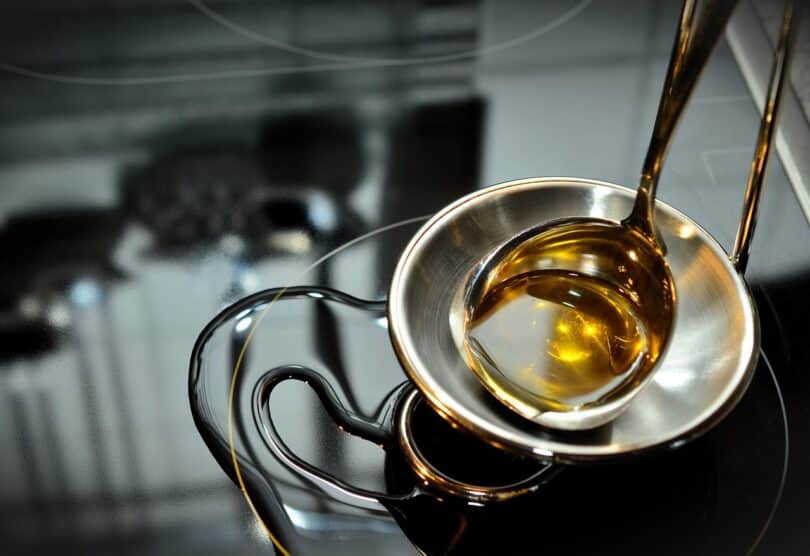Cooking oil is a staple in kitchens worldwide, a fundamental ingredient that’s as versatile as it is essential. Whether you’re deep-frying, sautéing, or dressing a salad, the type of oil you choose can define the flavor and nutrition of your meal. But as with all food products, cooking oil comes with its own set of questions regarding its longevity, disposal, safety, and storage conditions. In this article, we’ll address four common queries that might cross your mind as you reach for that bottle of oil.
Table of Contents
Can Cooking Oil Go Bad?
The Shelf Life of Liquid Gold
Cooking oil isn’t impervious to spoilage. It can, and does, go bad. The lifespan of cooking oil varies depending on the type, with oils rich in polyunsaturated fats spoiling faster than those high in monounsaturated or saturated fats. An oil’s shelf life can range from a few months to a couple of years. It’s crucial to store oil in a cool, dark place and keep it tightly sealed to prolong its usability. You’ll know your oil has gone bad if it has a rancid or off odor, a change in color, or a bitter taste. Using spoiled oil can ruin the flavor of your dishes and may pose health risks.
Can Cooking Oil Go Down the Drain?
The Slippery Slope of Oil Disposal
Pouring cooking oil down the drain is a recipe for disaster. When oil cools, it solidifies and can clog your pipes, leading to expensive plumbing bills. Worse yet, it can contribute to larger blockages in municipal sewer systems, known as ‘fatbergs,’ causing significant infrastructure issues. The eco-friendly way to dispose of used cooking oil is to cool it and throw it away in a sealed container, or even better, to take it to a recycling center that accepts used cooking oil.
Can Cooking Oil Catch Fire?
The Fiery Potential of Cooking Fats
Cooking oil is indeed flammable. If it’s heated beyond its smoke point—the temperature at which it begins to break down and smoke—it can ignite. This is why it’s essential to never leave hot oil unattended on the stove and to always heat oil slowly, keeping a close eye on the temperature. If a grease fire does occur, it’s important to know how to extinguish it safely: Turn off the heat and cover the pan with a metal lid or use a fire extinguisher designed for grease fires. Never use water, as it can cause the oil to splatter and spread the fire.
Can Cooking Oil Freeze?
When Temperatures Plunge: The Effect on Cooking Oil
While cooking oil doesn’t freeze solid like water, it can become cloudy and thicken at lower temperatures. Some oils, especially those with higher saturated fat content, may begin to solidify in the refrigerator. This doesn’t harm the oil, and bringing it back to room temperature will usually return it to its liquid state. Freezing cooking oil is not typically recommended as it can affect the flavor and quality, but if you must freeze it, be sure to do so in an airtight container.
Let’s Wrap it Up:
Cooking oil is a culinary constant, the quiet backbone of many a recipe. Yet, it demands a certain level of respect and knowledge to ensure its optimal use. Understanding that oil can spoil teaches us the importance of proper storage and attentiveness to freshness. Realizing the consequences of improper disposal prompts us to be more environmentally conscious in our cooking habits. Recognizing the fire hazard that hot oil presents calls for vigilance in the kitchen to prevent accidents.
And finally, knowing the effects of cold on oil helps us maintain its quality. Cooking oil, like any other ingredient, has its own set of rules. Respect them, and it will serve you well in the creation of countless meals. The key lies in handling it with care, awareness, and responsibility, ensuring that every drop contributes to a delicious and safe culinary creation.








Leave a Comment